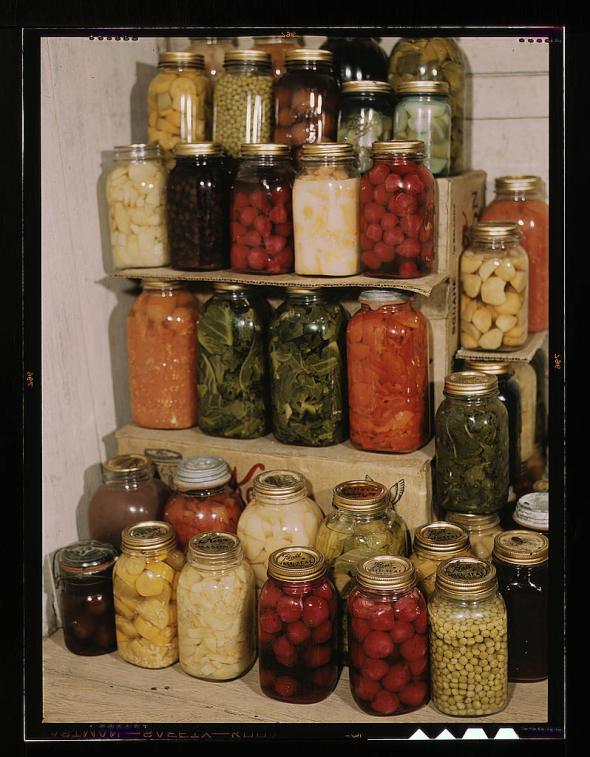Striving to Tithe
16December 6, 2015 by Paula Reed Nancarrow
I had been a clergy wife for four years, and a mother for three.
My son had just celebrated his first birthday. His older sister had been born in Port Huron, but by the time Aidan arrived we were living closer to Detroit, the Motor City, and my husband had moved up the ladder a bit, to Associate Rector. So many auto executives and their families attended Christ Church Dearborn it was nicknamed Ford Motor at Prayer.
I had completed my doctorate, but I was not teaching. I wanted to be a stay-at-home mom until my kids were in school. Like many women of my generation, race, and class, I thought I should be able to choose whether or not to work. My own mother had. I took for granted I would be able to as well.
My father-in-law – also a clergyman – used to joke that Episcopal priests and their families develop champagne tastes on a beer budget.
The rector of a prominent congregation like Christ Church Dearborn was well paid. But an associate’s position was a stepping-stone. The house (which the rector didn’t live in, because he wanted to own his own home) was considered the big perk. The salary was – well, let me just say that the sexton, who took care of the building and grounds and had been there for twenty years, was making more than my husband.
Not that we begrudged him. He had four children of his own, and his house, to be fair, was tiny by comparison. But we couldn’t eat bricks and mortar. When that same sexton offered us venison from his hunting trip and I was trying to feed the four of us on a grocery budget of $40 a week, I accepted it gladly.
We weren’t dirt poor: it was more like being the poor relation in a Jane Austen novel. But we tithed.
It was the Biblical standard of giving, and we were supposed to set an example. When I explained this to my father, who thought he was generous because he put a twenty into the collection plate every week, I felt a little superior.
“That’s all well and good for you,” he replied. “You just get it back in the end.” They pushed tithing at his church, too. He wasn’t falling for it.

Courtesy gutenberg.org
To be more accurate, we were “striving to tithe.”
If you judged on take home, we were there; if you judged on gross, before taxes, we were not. This was a legal point of some significance to me as I once more crossed “fresh fish” off the grocery list and replaced it with “canned tuna.” Fortunately the Associate Rector was not expected to have dinner parties.
I had my own garden the previous summer, before Aidan was pushing that walker to the edge of the world and back with those little legs and I had time to dig in the dirt. Thirty-five square feet of garden. We grew everything: beans, cucumbers, lettuce, spinach, radishes, sugar snap peas, tomatoes of all shapes and sizes, eggplant, potatoes, way too much zucchini. Forests of broccoli, alien stalks of brussels sprouts, beautiful kohlrabi that nobody wanted to eat. It was the best garden I ever had. I canned what I could not freeze, as my grandmother had before me. She too, was a clergyman’s wife.
It was the taxes that finally did us in.
Clergy taxes are rather complicated – you get perks like a housing allowance that’s not taxed, but you have to pay all of your Social Security (because for some unknown reason you’re considered self-employed). For that you have to count your housing allowance, and the rental value of the house to boot – although if we had had to pay the rental value of the house, we could not have afforded to live there. That year we had to borrow money from my husband’s grandmother to pay Uncle Sam.
And that year I went back to work. It was just two days a week, writing automotive abstracts for Ford Motor Company’s corporate library. A short term job, I told myself. The money was good – better than adjunct teaching– but I didn’t have to stay.
About five months into that short term job – which eventually became a full time job, and lasted ten years – the Parish Treasurer stopped by.
She brought over a box of scrap paper from the office for our daughter Maggie to draw on. Perforated computer stock, just a bit heavier than newsprint. Either it never occurred to her to look at what was on the back of it – the annual contribution records of each household in the parish – or she didn’t think either of us would be small-minded enough to want to know how we stacked up in our tithing compared to others.
She was half right.
In a parish chock full of Ford executives and stay at home moms – the type of mom I had thought I wanted to be – I discovered we were among the top twenty donors. As far as I know, no one ever found out I knew anything about their contribution levels. But the damage had been done.
This time I did not feel superior. I felt angry and resentful, bamboozled and betrayed.
I have turned this snapshot of myself over and over in my head for twenty-five years now.
I have come to know this resentful woman inside me, and I find I do not like her very much. I also know another self. One for whom giving out of one’s means – whether inside the church or out in the world – is an expression of gratitude and connection with others, not a way of measuring myself against them. Now that self brings me joy. That self I would like to know better.
But the more I dislike that resentful woman, the more I try to push her away, blame others for her problems, disown her, the more she tries to hide behind the one I like, and the cleverer she gets at doing so.
Perhaps it is time to befriend them both, before one hollows out the other completely, and climbs inside.

Hollow Woman by Diane Avis. Available for purchase at lagunaart.com




Wonderfully done Paula.
One time, before Corning Hospital employees were to vote on whether to join a union, I, (the hospital’s PR person) received a call from a reporter who wanted me to confirm my bosses salary. It was an obvious ploy by the union to sew anger and distrust of administration. I told the reporter that I personally did not want to know my boss’s salary because knowing would plant seeds of envy within me.
Sometimes not knowing things is best.
LikeLike
Yup. The sugar snap peas were a much better crop.
LikeLike
I’ve read somewhere about how the rich are often far less generous than people who know what it’s like to struggle. Still, now that Mark Zuckerberg and Bill Gates are giving away their billions, maybe others will too.
LikeLike
We can hope. ;-)
LikeLike
This I love: “giving out of one’s means” created resentment and now you aim to know her better. That is a beautiful line (and sentiment).
LikeLike
Thank you, my dear.
LikeLike
I left our church after we’d given lots of time and 10% of our net income for years, and the pastor preached that “net” income wasn’t enough. I’m a pretty generous person, and I love to give and share, but when what I do isn’t appreciated, I feel used, and that doesn’t feel good. Then, I’m done.
LikeLike
I hear you, sister. ;-)
LikeLiked by 1 person
A truly great essay. I remember when I was barely making it how upset I would get when people who made many times what I did would try to get out of paying their fair share at an event.
LikeLike
Yes. And then there are times I am so focused on what’s “fair” that I feel like a whiny child. Which sometimes is exactly what I am.
LikeLike
I hear you. I was once part of a very high risk ministry in the former Soviet Union. My income was below the poverty level, yet somehow G-d made ends meet. That said, it was very hurtful to find that the allotment that would sustain me for 3 mos was given and entirely spent on a short-term mission in 5 days?! There are times we simply are better off looking solely to the Master, and forget how our Church siblings stiffed us. $20 here is a fragment of a coffee and donuts budget, but perhaps a game changer for someone’s week outside the US. He saw. He sees. He is your shield and very great reward!
LikeLike
Yes, it gets complicated, doesn’t it. Being in touch with our very real feelings, and yet not acting on them. Thank you for your graceful response.
LikeLiked by 1 person
I haven’t got anything to say about this because it’s not a world I know anything about, but I enjoyed reading it. I started writing a load of stuff about material stuff not making you happy but realised it was probably irrelevant. I like the photograph of the jars :)
LikeLike
Yes, that’s lovely, isn’t it? I think someone on Twitter thought I had canned all that stuff; I wish. It’s a WWII photograph from Flickr commons.
LikeLike
So impressed with your cupboard of preserves!
One of the things I like about (proper) therapy is that it helps you to integrate all parts of the self, not only the supposed good bits. Humans are a whole mixture of contradtictions.
LikeLike
Ah, you too think I am a better canner than I am. Or was. it’s been a long time. Please see my response to Terry. Good that you picked up on the integration thing. That actually came from a talk with my daughter, who just got back from a battery of psychological evaluations she had to take before ordination – the MBTI, the MMPI, and the Enneagram. We had been talking about the latter, and about the whole concept of integration/disintegration, and it was that conversation that allowed me to come to the conclusion I did. By the way, I just started reading The Good Story. That’s the second time I’ve picked up a book because of one of your reviews. ;-)
LikeLike